
As a composer's copyright expires, publishers become entitled to bring out their own editions of music previously monopolised by whoever was lucky enough to secure the original contract. We, the customers, can't lose: competition between editions means that we can select just the right approach for our pupils – and our pockets. The most correct possible text becomes available to us, often with advice (for those of us who need it) on ornaments, fingerings and historical background. Conversely, for pupils who already have or are developing their own ideas – or for non-playing academics – we can choose texts that have been carefully purged of any ‘non-authentic’ help at all. Prices vary as well – how much should we pay, and what should we expect for the money?
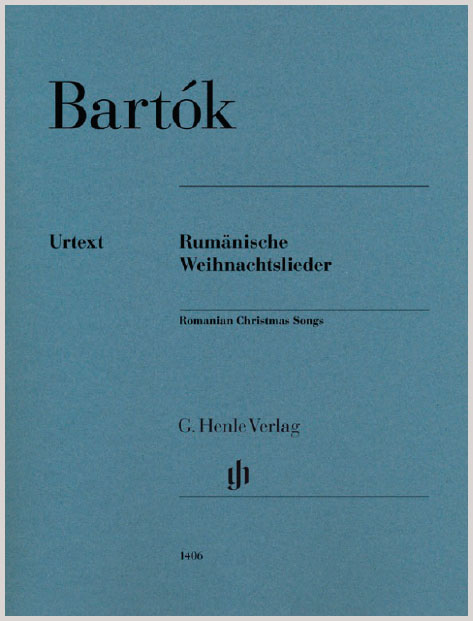
One from Henle
Bärenreiter's version is edited by Jonathan Del Mar and is part of an ongoing series; Henle has Murray Perahia for an editor; Wiener Urtext (currently available in ‘Piano Sonatas Vol. 3’ but not yet separately) has a whole raft of consultants, with Hans Kann doing the fingering. The musical text, scrupulously compared afresh with surviving sources, is reliable. Henle takes one less page over it than the others. Wiener Urtext's wide page margins cramp the music itself, very slightly. Editorial backup – historical background and textual queries – varies from 13 to 21 pages, unevenly shared among English, French and German. Bärenreiter adds an essay on performance practice; Henle, a Schenkerian analysis. Page-turns are thoughtfully located, even with the Bärenreiter, whose absence of fingerings steers it more towards academics than performers (as does Peters’ new and unfingered edition of Bach's French Overture and Suites). Be warned, some Wiener Urtext offprints of individual sonatas have no editorial notes at all. Editors never sleep, so purchasers beware: both Henle and Wiener Urtext have replaced their own earlier editions, which are nevertheless still available.
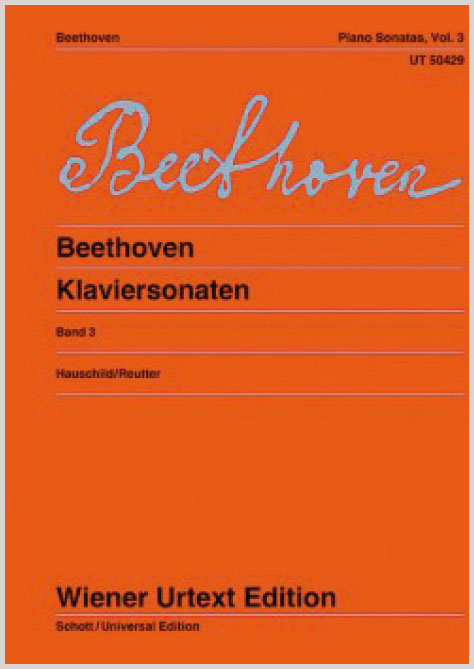
The Wiener Urtext
These are the just the tips of real icebergs: Bärenreiter's 11-volume Beethoven batch enterprisingly includes the three early ‘Kurfürsten’ sonatas (WoO47). The three sonatas of Op. 10 likewise share a volume, as do Opp. 31 and 49. Beethoven apart, the same publisher's ‘standard-rep’ coverage ranges from Couperin's second book of ‘Pièces de clavecin’, Mozart's ‘Sonata alla Turca’, Schubert's G major sonata D 894 and Brahms’ ‘Two Rhapsodies Op. 79’, to a most welcome compilation for beginners – Bartók's Easy Piano Pieces and Dances. These 23 fragments include harmonics and bitonality but are rarely harder than the slow movement of the sonatine, one of only two items whose source is uncredited.
Henle eschews Bärenreiter's colour-coded front covers and sticks to its traditional grey-blue. Noteworthy among recent releases is a 152-page first volume of Beethoven's Variations, perfect for gap-filling library-builders in containing 11 sets, though none with opus numbers (Volume Two contains the ‘Eroica’, ‘Diabelli’, C minor and Op. 34 sets). There's plenty of Bartók: Mikrokosmos (in three volumes, as the composer intended), For Children (Two books), the Romanian Folk Dances and Christmas Songs (a book each) and the intellectually more challenging Improvisations on Hungarian Peasant Songs Op. 20. Henle invites another look at Brahms's early sonatas (Opp. 1, 2 and 5) and, as light relief, the famous ‘A flat Waltz Op. 39 No. 15’ in both original and simplified forms. Fauré's newly edited ‘Sixth Nocturne’ becomes a fine introduction to a voluminous output still too little known.
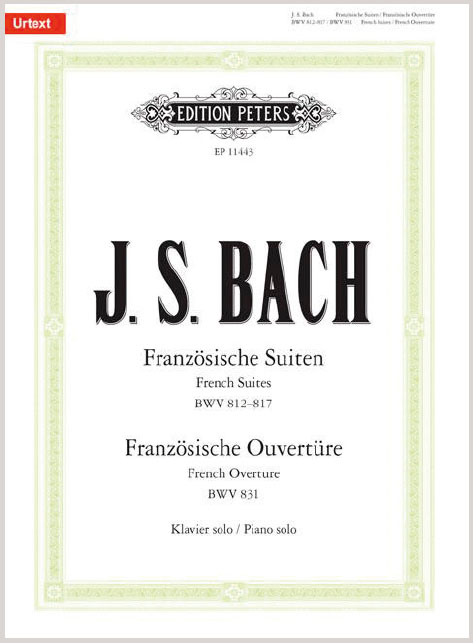
A Peters book
Liszt, Ravel and Grieg appear as arrangers, Liszt with Schubert (Widmung – no, you don't have to play all four staves at once!) and Wagner (the Tannhauser concert paraphrase), Ravel – intricately so – with Debussy's Prélude á l’après-midi and Grieg with a solo version of his own duet Norwegian Dances, for the benefit of dance-class pianists, perhaps, or those with no friends. Debussy himself is represented by the early Nocturne and Valse romantique. Dvořák's complete Op. 101 Humoresques lure us beyond the famous one in G flat. Lesser-achieving pupils are catered for with 15 selected Mozart sonata-movements and short pieces, part of Henle's At the Piano series.
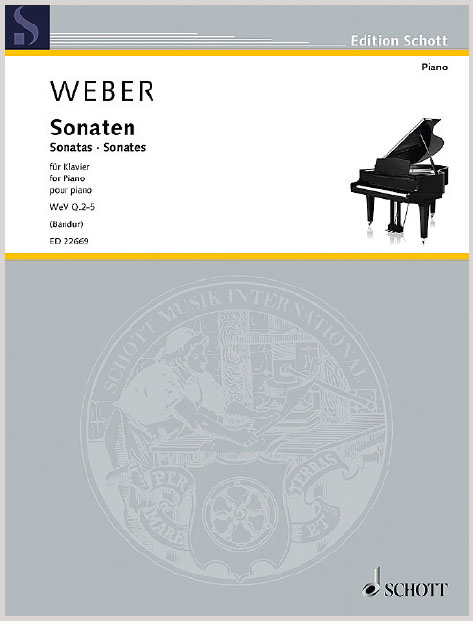
Schott's urtext
Wiener Urtext's only other publication to hand is the complete Chopin Polonaises – 16 in all – including the Polonaise-Fantaisie and that early stuff with misleadingly high opus-numbers, perfect for library-builders even if the only ones you're likely to play more than once are those between Op. 26 and 61. Schott's album of all four (rarely played) Weber sonatas is an immaculately presented offprint from the Complete Weber Edition, though half as costly again as the old Peters.
Alfred offer not the complete Polonaises but the four Chopin Scherzos. Editor Joseph Banowetz's 24-page foreword may be more beginner-friendly than Henle's but offers something new for everyone. The musical text is clearly laid out, with copious fingering and pedalling suggestions you can try out or ignore. Similar standards pervade Schumann's Kriesleriana Op. 16 (what a lot of tenor-register G minor this set contains!), the composer's idiosyncratic, not to say perplexing, layouts (say in Nos. 4 and 5) being reverently preserved by editor Charles Timbrell.
This has been something of a headlong dash through a towering pile of music. For more in-depth coverage of less usual repertoire (Penderecki, Rösler, Schneider and Zaderatsky, anyone?) keep watching this space!
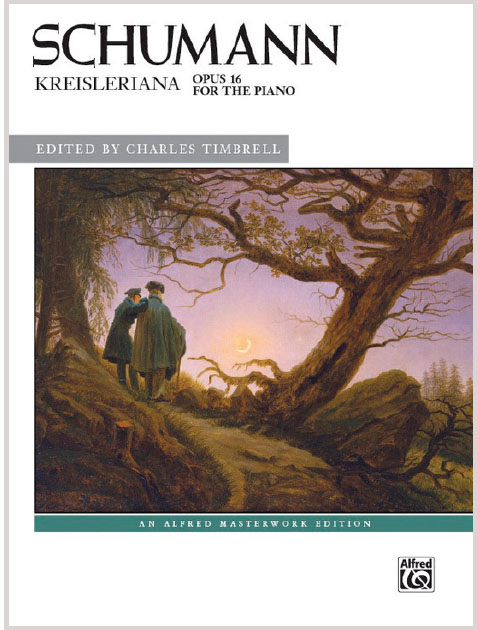
The Alfred Schumann
The music looked at in this review:
Bärenreiter
Beethoven, ed. J Del Mar Three Sonatas (Kurfürsten Sonatas) WoO47, BA 11801, £12.00/Sonata in E flat Op. 7 ‘Grande Sonate’, BA 11802, £7.00/Three Sonatas Op. 10, BA 10857, £14.50/Two Sonatas Op. 14, BA 10858, £6.50/Sonata in B flat Op. 22, BA 11803, £7.00/Sonata in A flat Op. 26 ‘Funeral March’, BA 11804, £8.50/Three Sonatas, Op. 31, BA 11805, £18.50/Sonata in F, Op. 54, BA 11806, £6.00/Sonata in F sharp, Op. 78, BA 11807, £9.00/Sonata in G, Op. 79, BA 11815, £6.00/Sonata in E flat ‘Les Adieux’, Op. 81a, BA 11808, £7.00/Sonata in E minor, Op. 90, BA 11809, £7.00
Couperin Pièces de clavecin, Second livre (1717), BA 10845, £41.00
Mozart Sonata in A, K.331, BA 9186, £6.00
Schubert Sonata in G, Op. 78, BA 9615, £13.00
Brahms Two Rhapsodies, Op. 79, BA 9614, £8.50
Bartók Easy Piano Pieces and Dances, BA 6587, £10.00
Henle
Bartók Mikrokosmos, 3 Vols., HN 1408-10, £19.99, £23.99, £23.99/For Children, Books I and II, HN 1225-6, 2 Vols., £13.50 each/Romanian Folk Dances, HN 1402, £7.99/Rumanian Christmas Songs, HN 1406, £13.50/Improvisations on Hungarian Peasant-songs, Op. 20, HN 1405, £10.99
Beethoven Sonata in E minor, Op. 90, HN 1124, £7.99/Piano variations Vol. 1, HN 1267, £23.99
Brahms Sonatas: No. 1 in C, Op. 1, HN 1288, £9.50/No. 2 in F sharp minor, Op. 2, HN 1289, £9.99/No. 3 in F minor, Op. 5, HN 1290, £9.99/Waltz, Op. 39, No 15, HN 1089, £4.50
Chopin Scherzos: in B minor, Op. 20, HN 1334, £7.50/in B flat minor, Op. 31, HN 1335, £7.99
Debussy, arr. Ravel Prélude á l’après-midi, for piano duet, HN 1259, £9.99
Debussy Nocturne, HN 1087, £5.50/Valse romantique, HN 1156, £4.50
Dvořák Humoresques, Op. 101, HN 1044, £9.50
Fauré Nocturne, No. 6 in D flat, Op. 63, HN 1081, £8.99
Grieg Norwegian Dances Op. 35: for piano duet, HN 1283, £11.99/for piano solo, HN 1282, £9.99
Mozart, ed. Hewig-Tröscher, Sylvia At the Piano, HN 1812, £15.50
Schumann, arr. Liszt Widmung, from Op. 25, HN 1356, £6.50
Wagner-Liszt Overture, Tannhauser, HN 1066, £12.50
Wiener Urtext
Beethoven Piano Sonatas Vol 3., UT 50429, £24.95
Chopin Polonaises, UT 50157, £23.50
Peters
Bach, J.S. French Suites BWV 812-7 and French Overture BWV 831, EP 11443, £16.95
Schott
Weber Sonatas WeV Q.2-5, ED 22669, £33.50
Alfred
Chopin, ed. Banowetz, Scherzos, Opp. 20, 31, 39, 54, £16.95
Schumann, ed. Timbrell Kreisleriana, Op. 16, £9.95








